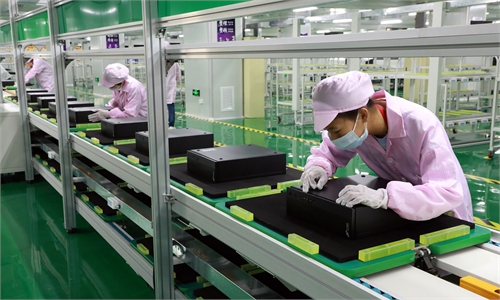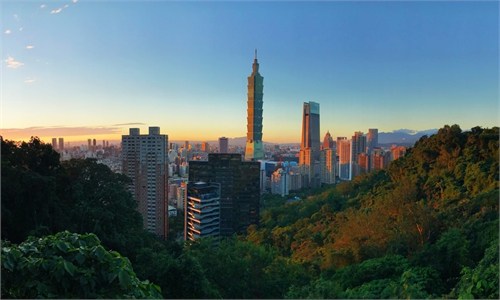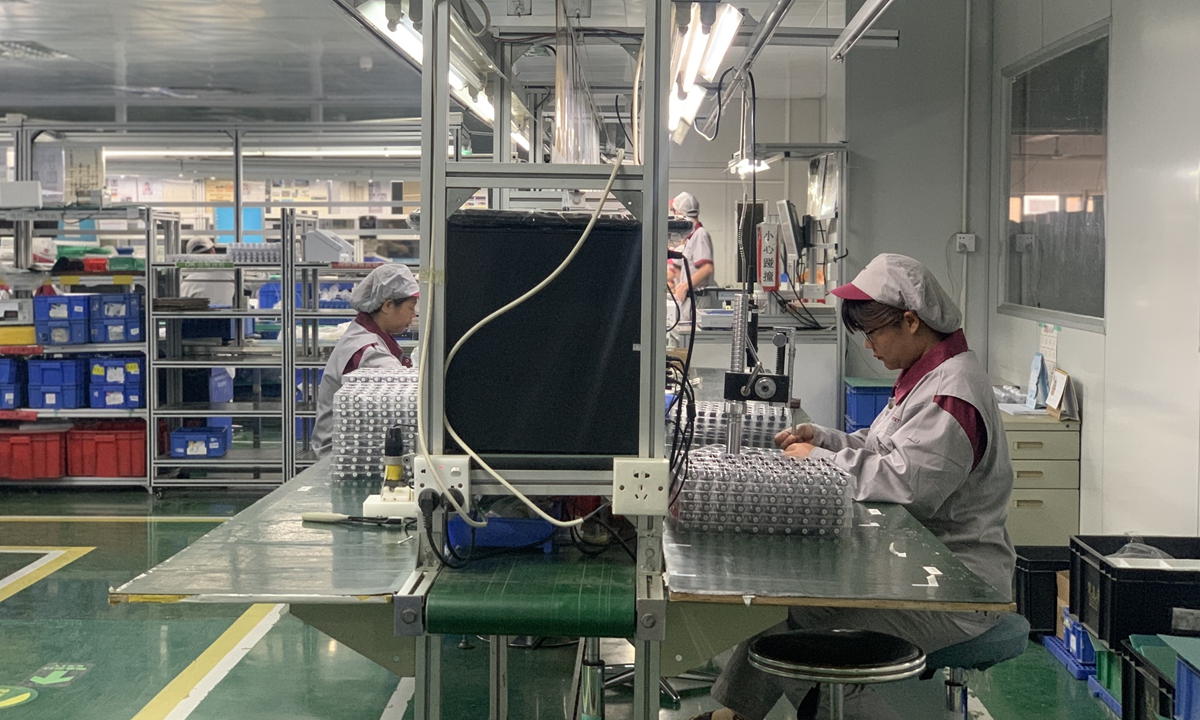
A factory run by Taiwan businessman that makes electronic components and iron-made hardware parts for various devices are equipped with automatic machines to increase production output. Photo: Chen Qingqing/GT
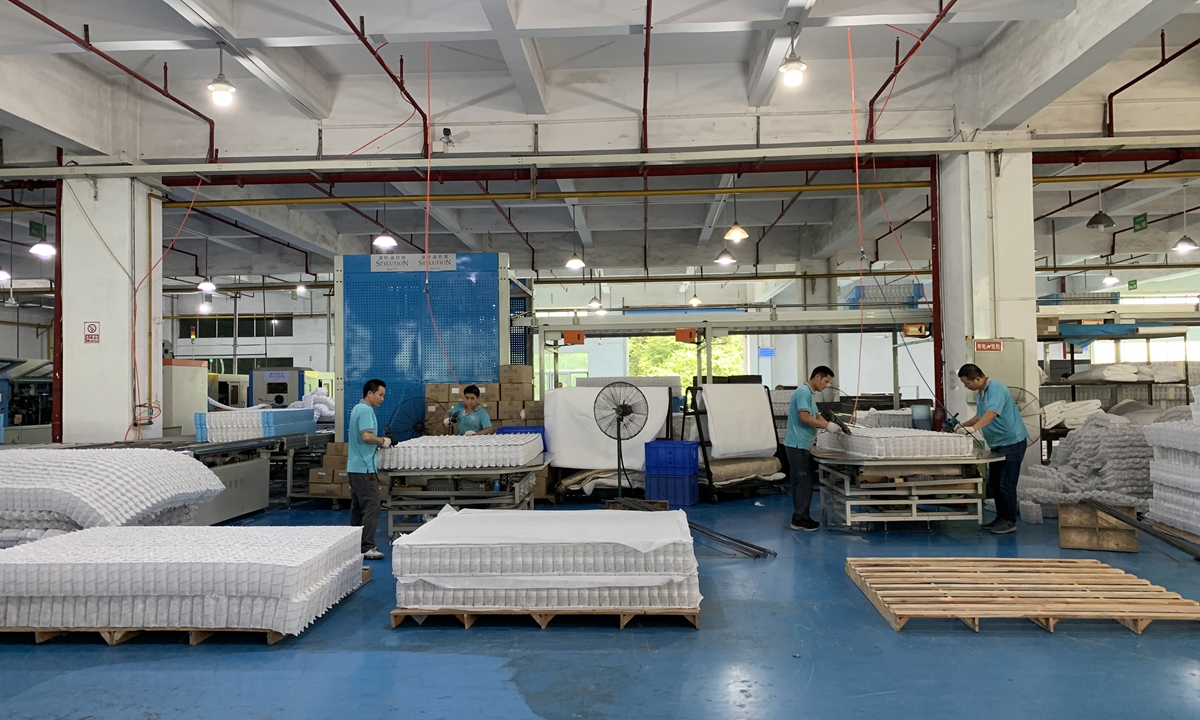
All employees at a factory run by Taiwan businesman in Dongguan, South China's Guangdong Province, which produces furniture and mattress, have returned to work as China fully contained coronavirus epidemic. Photo: Chen Qingqing/GT
In sharp contrast to flaring tensions between the island of Taiwan and the Chinese mainland, intensified by a geopolitical battle between China and the US and the coronavirus pandemic, a group of businesspeople from the island who have been doing business in Dongguan in South China's Guangdong Province, said they are remaining calm. For some, it's impossible to abandon the mainland market, even as rhetoric of "economic decoupling" continues to rise.
"Never rely on the weather to make a living, just rely on yourself," reads a slogan on the walls of the factory of Stylution Int'l (China) Corp, a Taiwan furniture manufacturer, which established a production line in Dongguan more than two decades ago.
Among the first batches of Taiwan businesses to invest in the mainland and witness its economic opening-up in 1990s, Stylution still values its slogan, especially as it faces growing uncertainties and a complex geopolitical environment.
"The mainland's supply chain can't be replaced," Alex Chen, the Taiwan furniture firm's president, told the Global Times on Monday.
After a yearlong trade war between the US and China, which hit furniture makers in China with higher tariffs, the unprecedented coronavirus pandemic made the situation even worse. While the separatist Democratic Progressive Party (DPP) authorities on the island continue instigating "decoupling" from the mainland, Taiwan business are heading in the opposite direction, driven by the "natural choice" of market demand.
Not easy to duplicate
"It's not easy to duplicate Dongguan's comprehensive, highly integrated supply chain in other countries like Vietnam, and it's near impossible to find the same highly efficient workers in Southeast Asia," Chen said, noting that some Taiwan factories that had shifted production lines out of the mainland found business prospects weren't as promising as they hoped.
For example, concentrated and integrated industrial chains in Dongguan, which has been dubbed the world's factory, enable businesses to reach out to their business partners and suppliers from both upper and lower streams within a maximum of three hours, and mature logistics and support facilities help shape industry clusters.
From supplying raw materials to processing electronic components, factories in this southern city can make just about everything, sometimes even unimaginable things.
In Kinyet Metal Products, a Taiwan stamping parts supplier in Dongguan's Chashan town where many electronic products assemblers are located, robotic arms at some automatic production lines were working relentlessly to meet production targets on Monday. Some trucks move out one by one loaded with products. There's no sign of a slowdown caused by the COVID-19 epidemic.
"You can't image what we can make with those pieces of iron," Zhang Yanping, an employee at Kinyet, told the Global Times on Monday. The factory produces various parts and components used in electronic devices including laptops, cars, printers and other machines.
"Even the camera component of an iPhone, you'll find a metal part made by us," she said.
Integrated industrial chain
Lu Yongchang, president of Kinyet, started his business in the mainland in 1992, bringing new skills and fresh ideas in corporate management from Taiwan to Dongguan.
Liu sees DPP chairperson Tsai Ing-wen's constant attempts to encourage economic decoupling with policies to reduce the dependence on mainland and encouraging businesses either to return to the island or move elsewhere in Asia, as empty political promises.
"Building a skill-intensive factory such as a stamping parts factory in other countries is different than setting up an assembling line factory. [My factory] requires a huge number of workers and specialized training, [and moving] creates many challenges including a language barrier," Lu told the Global Times on Monday.
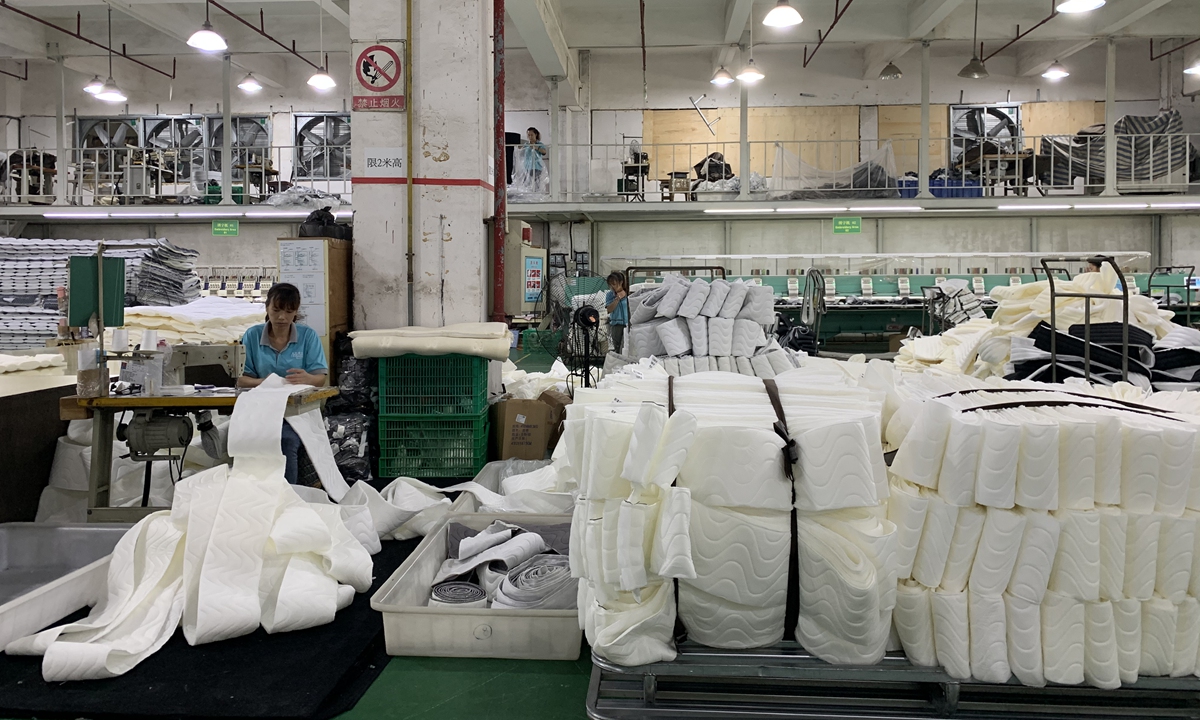
Employees produce furniture and mattress at a factory run by Taiwan businessman in Dongguan, South China's Guangdong Province, on Monday. Photo: Chen Qingqing/GT
After years of growth, China's industrial chain is now concentrated and integrated. By comparison, in some Southeast Asian countries like Vietnam, the industrial chain has only started to form and grow in recent years. Many enterprises that had moved to those countries still had to buy some parts from China, adding to costs, the Taiwan entrepreneur said.
"Don't even mention moving back to Taiwan. Where can we get enough land? Will there be support facilities and is it easy to access suppliers from upstream and downstream?" Lu asked. "Don't believe in political talk, take a look at what the reality is."
Huge market and prospects
Recent economic numbers back up Lu's claims, especially since the mainland is the first to resume production after containing the coronavirus. The accelerating economic recovery has rekindled hopes for Taiwan companies.
In the first half of 2020, investment by Taiwan companies in mainland grew 52 percent year-on-year to $3.17 billion, official data shows.
Yet deteriorating cross-Straits political relations still pose hurdles for businesspeople like Lu and Chen, who see DPP authorities' 14-day quarantine measures required of those returning from the mainland, and the very few flights between mainland and Taiwan, as "political maneuvers" aimed at restricting business.
"Another 14-day mandatory quarantine for those who fly back to Taiwan from mainland, where the epidemic has been fully contained, brings a lot of inconvenience for business activities," Lu said.
Then there is the Taiwan question, which has escalated the risk of a war in the Taiwan Straits. Taiwan businesspeople who live mainly on the mainland expect peaceful reunification, while the past decades have witnessed ups and downs in the cross-Straits relations.
"Looking back on history, we have been speaking the same language for more than 5,000 years and we have the same cultural background, even though we have had differences for 70 years," Chen said, noting that there is no reason people from the two sides should be confronting each other with growing hostility.
"Taiwan businesses in the mainland usually serve as the bridge. I won't lose faith in playing the role of a communicator of letting more people in Taiwan know about the mainland's huge market potential and promising business prospects," said Chen.
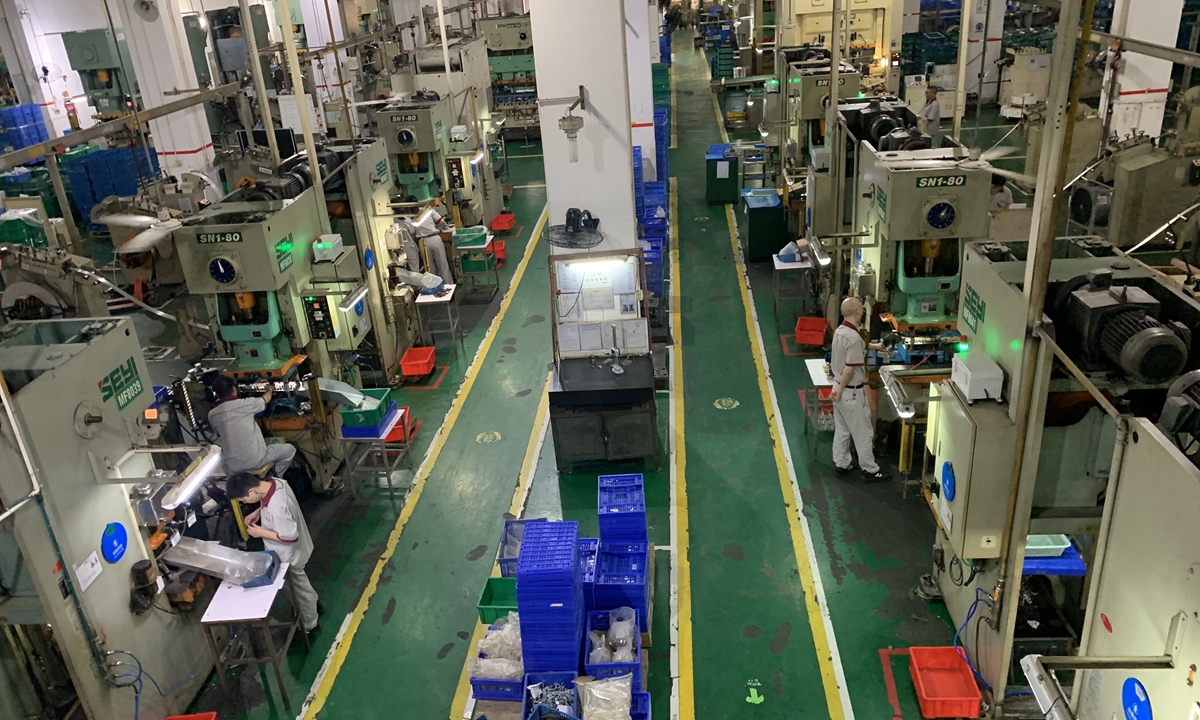
A factory run by Taiwan businesses that makes electronic components and iron-made hardware parts for various devices are equipped with automatic machines to increase production output. Photo: Chen Qingqing/GT

